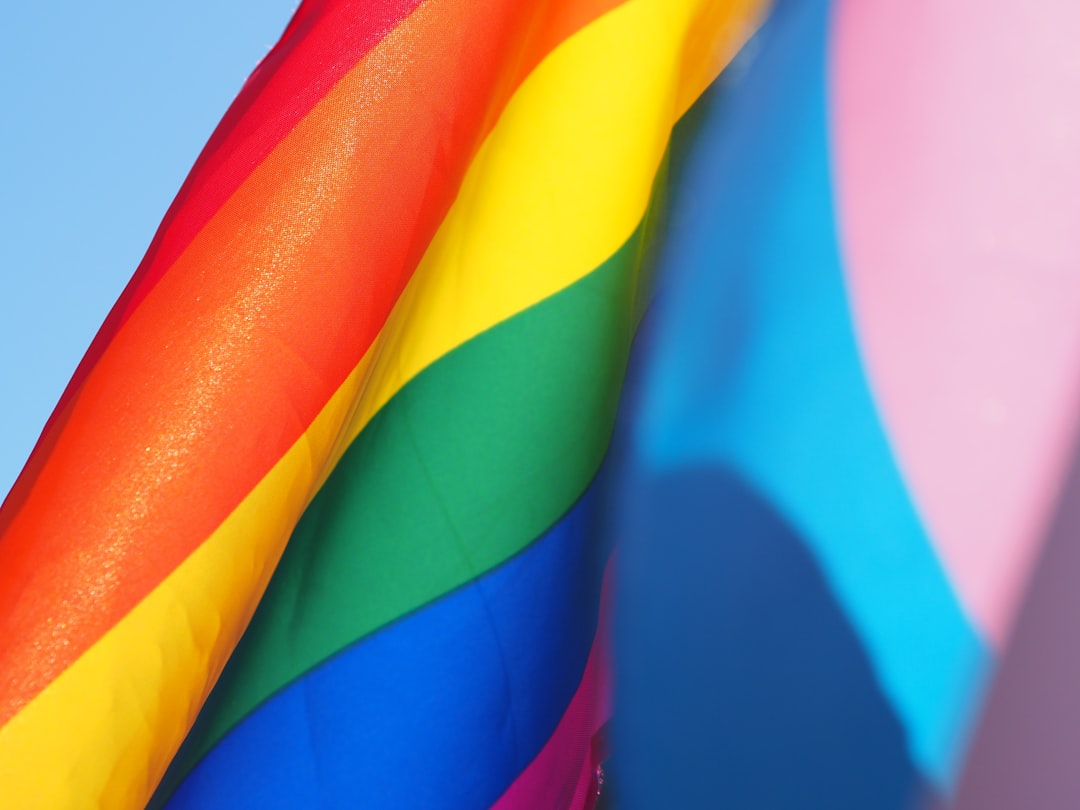Striving for Equality: Addressing Sexual Orientation Discrimination in New Jersey Workplaces
 Photo from Unsplash
Photo from Unsplash
Originally Posted On: https://commonlegalquestions.com/striving-for-equality-addressing-sexual-orientation-discrimination-in-new-jersey-workplaces/
Although societal attitudes towards lesbian, gay, bisexual, and transgender (LGBT) individuals have become more accepting, workplace discrimination based on sexual orientation remains a significant issue in New Jersey. Until quite recently, Title VII of the Civil Rights Act did not offer explicit protection for sexual orientation or transgender status. Despite this, Title VII does outlaw discrimination based on gender, a clause that the Equal Employment Opportunity Commission (EEOC) has interpreted as encompassing discrimination rooted in sexual orientation and gender identity. To combat this type of employment discrimination more effectively, New Jersey, among other states, has passed specific state laws.
Assessing the Prevalence of Workplace Discrimination Based on Sexual Orientation
Regrettably, discrimination in the workplace is an all too frequent experience for LGBT employees and job applicants. Reports by various organizations highlight the distressing extent of this issue. For instance, the Center for American Progress reveals that a considerable percentage of gay individuals, between 15% to 43%, have been victims of workplace harassment. These incidents range from offensive comments to more severe forms of discrimination, contributing to a hostile work environment.
Another comprehensive report by Catalyst, a global nonprofit working to build workplaces that work for women, tells a similar story. It estimates that about 20% of LGBT Americans have faced discrimination during job application processes. This could manifest as unjust rejection of job applications, biased interviewing practices, or being overlooked for positions despite qualifications and experience. Furthermore, Catalyst’s report suggests that 22% of LGBT individuals have not received equal pay or promotions at the same rate as their heterosexual colleagues. This pay and advancement gap suggests systemic issues of inequality that extend beyond hiring.
Discrimination based on sexual orientation isn’t limited to entry-level or middle management positions, either. It stretches to the very apex of corporate America. As of 2020, less than 0.3% of board directors at Fortune 500 companies openly identify as LGBT. This glaring underrepresentation at the highest echelons of corporate leadership underscores the significant barriers LGBT individuals face in their professional advancement.
Overall, these statistics underscore the pervasive nature of workplace discrimination based on sexual orientation, illustrating the urgency for robust measures to address this pressing issue.
An Examination of Protections Against Sexual Orientation Discrimination in New Jersey Workplaces Under State Law
The New Jersey Law Against Discrimination (NJLAD) serves as a vital legal safeguard, prohibiting discrimination based on an individual’s sexual orientation or gender identity. A comprehensive law, the NJLAD goes beyond the commonly recognized LGBT categories of Lesbian, Gay, Bisexual, and Transgender to offer protection for a diverse range of sexual orientations and gender identities. These include Lesbian, Gay, Bisexual, Transgender, Transsexual, Queer, Questioning, Intersex, Asexual, Pansexual, and Ally statuses. This broad coverage reflects the diverse nature of human sexual orientations and ensures that all individuals are protected under the law.
Apart from these, NJLAD also protects against discrimination based on other traits, such as an individual’s sex, familial status, and marital status. It offers legal protections for individuals in domestic partnerships or civil union statuses and covers discrimination based on affectional or sexual orientation and gender identity or expression. Furthermore, it prohibits discrimination due to genetic information, as well as an individual’s AIDS or HIV status.
Despite the robust protections offered by the NJLAD, many LGBT individuals continue to face workplace discrimination, which can manifest in various forms such as harassment, wrongful termination, and retaliation. For instance, LGBT individuals might find themselves unfairly demoted, disciplined, or even dismissed due to their sexual preference or orientation.
Other forms of discrimination can occur in the form of denied promotions or career advancement opportunities based on an individual’s sexuality. This may also extend to the denial of access to certain facilities or resources in the workplace. Additionally, differential treatment or compensation due to one’s sexual orientation is also a form of discrimination.
Creating a hostile work environment through inappropriate jokes, remarks, or stereotyping, especially those targeting an individual’s sexual orientation, can also be seen as workplace discrimination. Furthermore, discrimination can be based on an individual’s gender expression, such as their clothing, manner of speech, or mannerisms. Retaliation can also occur when an individual reveals their gender identity, leading to detrimental consequences. Also, sexual harassment that targets an individual based on their sexual orientation falls under workplace discrimination.
In summary, while the NJLAD offers comprehensive protections against discrimination based on sexual orientation and gender identity, real-world implementation remains a challenge, with many LGBT individuals continuing to face discrimination in various forms in their workplaces.
The Impact of the June 2020 Supreme Court Ruling on Sexual Orientation Discrimination
In a landmark ruling on June 15, 2020, the Supreme Court delivered a significant victory for the LGBT community. In a 6-3 decision, the Court asserted that under federal law, an employer cannot dismiss an employee due to their being gay or transgender (Bostock v. Clayton County, Georgia, No. 17-1618 (S. Ct. June 15, 2020)[1]). This pivotal case was initiated by three workers from Georgia who alleged they were terminated from their jobs due to their sexual orientation or transgender status.
The Court’s interpretation of Title VII of the Civil Rights Act was instrumental in reaching this verdict. They determined that it’s fundamentally impossible to discriminate against someone for being homosexual or transgender without engaging in discrimination based on sex. For instance, if an employer terminates a male employee because he is married to another man, but wouldn’t dismiss a female employee married to a man, the employer is discriminating based on gender.
Before this Supreme Court decision, only about half of the states in the country had local laws that protected workers against sexual orientation discrimination. This ruling marked the first time that employers across the entire nation were legally prohibited from terminating employees due to their being gay or transgender.
This progression in the law is a significant breakthrough for the LGBT community. It has set a precedent that will influence the interpretation and handling of sexual orientation discrimination cases not just in New Jersey, but across the United States. It is expected to have a far-reaching impact on employment practices, ultimately contributing to creating more inclusive workplaces for everyone, regardless of sexual orientation or gender identity. According to New Jersey employment lawyer Ty Hyderally of Hyderally & Associates, “While [June 15th’s] win advances LGBTQ rights in the workplace, members of this community continue to face widespread discrimination in housing, public education, federal funding, credit and the jury system.”
Procedures for Submitting a Complaint for Workplace Discrimination in New Jersey
In New Jersey, employees who have been subjected to workplace discrimination due to their sexual orientation or gender identity have the right to take legal action. They can submit a formal complaint through two key channels.
One of these is the New Jersey Superior Court. This judicial institution provides a platform where affected individuals can present their cases directly in a formal legal setting. The court process involves filing a complaint that articulates the specifics of the discrimination experienced, presenting evidence, and potentially engaging in litigation proceedings.
Alternatively, complaints can be lodged with the Division of Civil Rights (DCR), a state agency in New Jersey specifically dedicated to upholding civil rights and preventing discrimination. The DCR offers a somewhat different approach to addressing discrimination complaints. Unlike the court process, which can be lengthy and involved, the DCR often provides a more streamlined process, offering mediation or conciliation opportunities where possible to resolve disputes. In addition, the DCR conducts investigations into allegations of discrimination and can impose penalties or enforce remedial actions if a violation is found.
Regardless of the chosen route, it’s crucial for employees to understand that they have the right to a discrimination-free workplace and that there are established avenues available to them to seek justice and remedy if they encounter discrimination based on sexual orientation or gender identity. Both the New Jersey Superior Court and the DCR are committed to ensuring that the principles of equality and non-discrimination are upheld in all workplaces across the state.
More News
View More




Recent Quotes
View MoreQuotes delayed at least 20 minutes.
By accessing this page, you agree to the Privacy Policy and Terms Of Service.